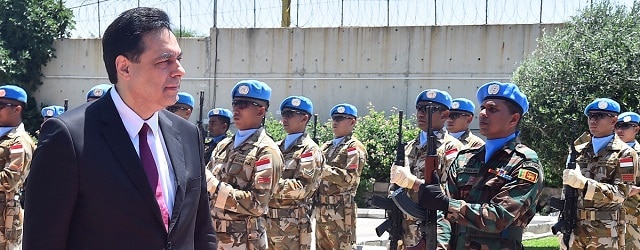Lebanon's economy spirals as regional tensions exacerbate domestic political turmoil.

Lebanon is caught in an unprecedented financial maelstrom. In just a few months, a liquidity crisis has paralyzed the banking system and precipitated a devaluation of the lira. By July, the currency had lost 80% of its value. The Banque du Liban continues to print local currency, which in turn fuels soaring inflation.
Prime Minister Hassan Diab’s last chance to save the country from complete financial and economic collapse is a deal with the International Monetary Fund. Negotiations started in May. Diab hopes to secure $10 billion to put the Lebanese economy back on track, but the IMF is asking for reforms. Talks are not public, but Lebanon’s imbalances are no secret; the electricity sector alone represents 40% of Lebanese debt. Other sectors such as telecommunications, customs and border control are expected to be part of the deal.
Lebanon’s powerful ruling elite is not keen on the plan. The Lebanese system is a fragile equilibrium between 18 religious groups and countless political parties, often headed by influential families whose survival depends on their ability to divert public funds to feed their electoral base. Diab has little say in this game and, as a result, negotiations with the IMF are at a halt. “It breaks my heart,” says Kristalina Georgieva, managing director of the IMF.
Diab is also facing harsh words from local and foreign observers. In early July, UN human rights chief Michelle Bachelet said the country was “spiralling out of control” and urged the government to address people’s “essential needs such as food, electricity, health and education.”
Even Gulf states that supported Lebanon through previous crises are no longer willing to sign a blank check to a country where the strongest player is now Iran’s ally, Hezbollah.
“What we are really seeing here is a deterioration of Lebanon’s Arab and Gulf relations,” Anwar Gargash, Minister of State for Foreign Affairs, told CNBC in June. “Lebanon is partly paying the price for that.”
Beirut’s future is now in the hands of Washington. It can send in help—and give Lebanon some breathing space until the next crisis—or leave the Lebanese to figure it out.



